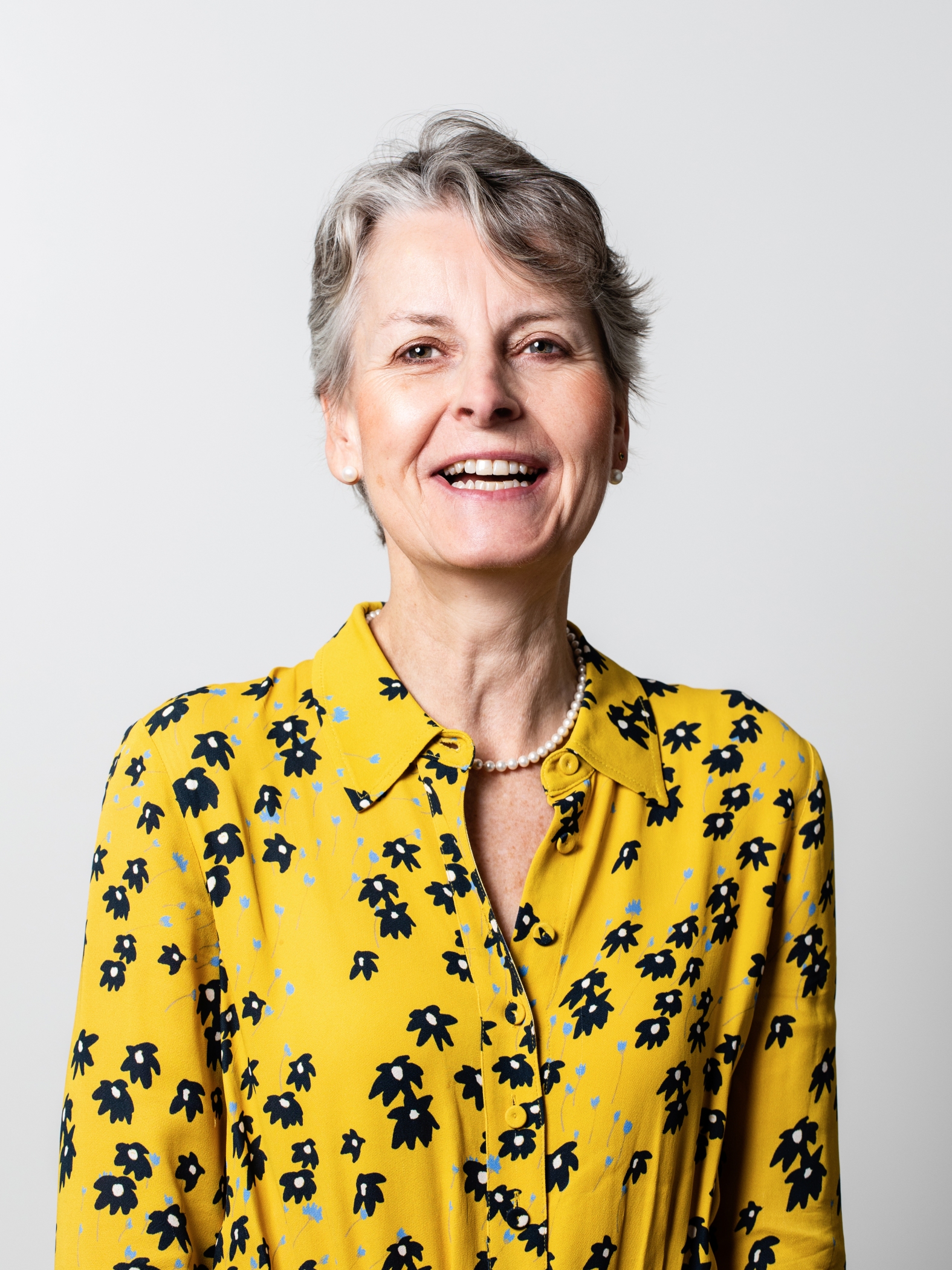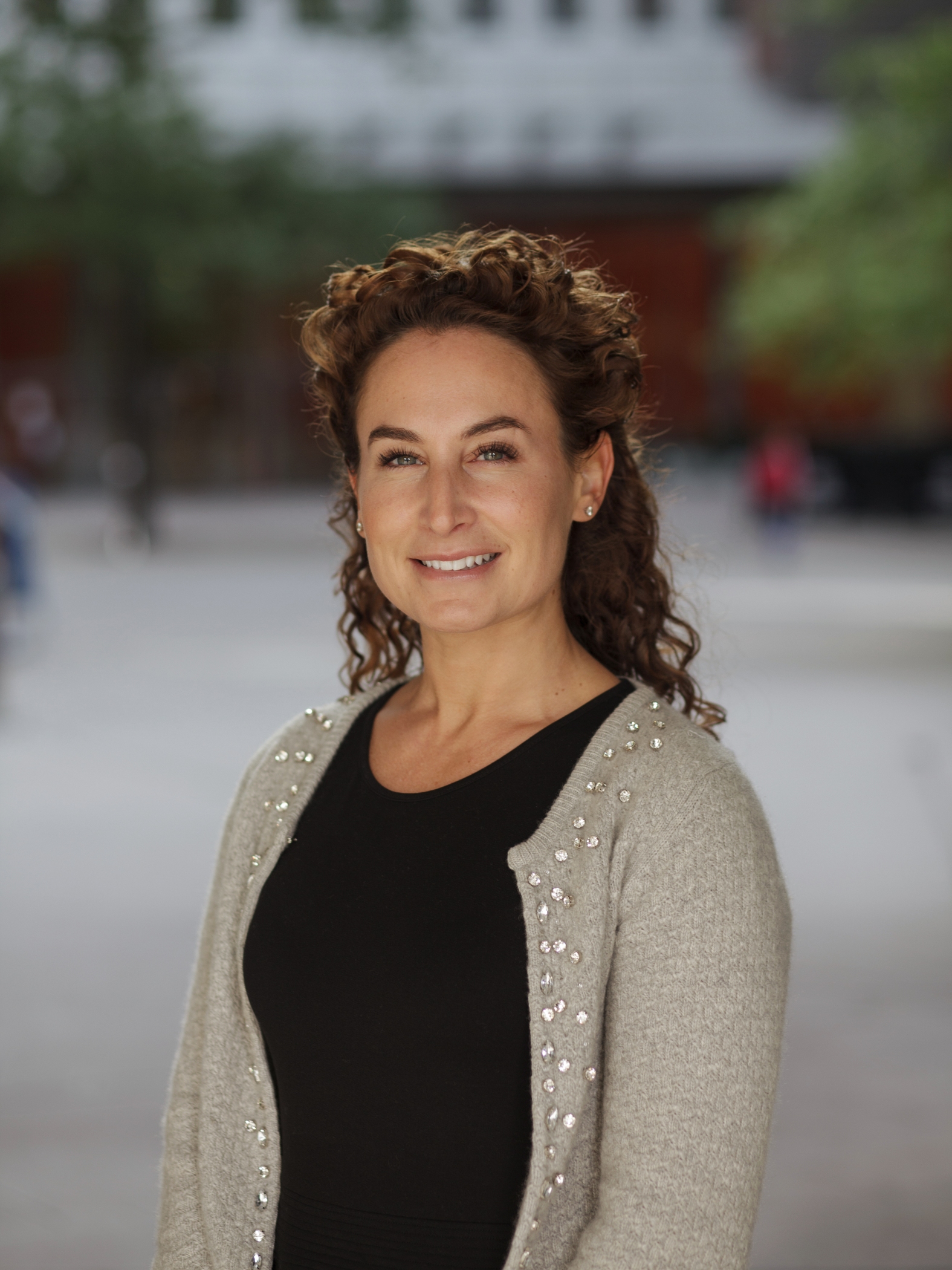To celebrate International Women’s Day CoStar News has caught up with a number of senior women in United Kingdom real estate to talk about what they are working on, their journeys to the top and how things are changing for the better or worse for women working in property.
The Asset Manager

Anthea Harries, asset management director at King’s Cross, the 67-acre London estate that is home to the likes of Google, Meta, Sony Music, Havas, The Office Group, NewDay Cards and Universal Music, says when she began her career it was challenging for women in real estate because so few worked in the profession. “I recall there were four women on my estate management course out of 100.”
Harries said from the beginning she had seen real estate as a vocation. “I never wanted to be a consultant but always be in asset management for the owner. I wanted to be a generalist.”
Her first job was at British Rail on her sandwich year in London gaining experience managing assets and collecting rent door to door. “I did send around 100 CVs out. It was hard.”
Her next job was at Asda Properties working for Manny Davidson before she moved to British Land and worked for chief executives Sir John Ritblat and then Chris Grigg.
“I have been very lucky to be very much supported by male and female mentors. The industry is good for nurturing people. At BL though I remember I was the only female surveyor in the team at first. Now I would think it is around 50:50 to show how things have changed.”
Harries joined the Crown Estate after around 10 years at BL and focused on the St James’s estate, an area she said was notable for some “very traditional male clubs”.
Her mentor at the Crown, the chief executive officer Dame Alison Nimmo, clearly had a huge impact on her career. “I took a lot from her style of leadership. She was a huge inspiration – very fair and considered.” Harries says she is very proud of her seven years at the Crown, a “unique business”.
She then moved to work for Argent in 2018, where her focus was on asset managing the 67-acre King’s Cross estate. Since then, she has overseen the management of a site that has become synonymous with successful regeneration in the UK, including navigating the pandemic.
“It was a really challenging time but our team kept coming into the office regularly. We felt the key to managing the situation was being on the ground with our occupiers, in particular our retailers, many of which were new to the estate. Coal Drops Yard [the retail hub] had only opened 18 months before and was still establishing itself.”
Harries says there is around two more years to go before construction on the estate completes but that it is already becoming a fully operational site. The business is also looking to bring forward additional regeneration projects in the surrounding areas and is in the early stages of redeveloping the nearby St Pancras Hospital site. On 1 May, Argent will be absorbed by Related Argent and Harries is therefore also working on the asset management of Related Argent’s other major projects: Brent Cross Town and Heart of Hale.
In terms of how she looks to encourage other women in the profession and more diversity as a whole Harries says. “It is really important but it is always about finding the right person for the job. And that comes from targeting people at a grass roots level. Part of our remit here is to get into schools and help provide a broader platform to help people get access to the industry; to show how this is an area that can offer so much to improving so many people’s lives. And what I really see now is a lot of hugely successful women changing the face of London in real estate.”
The Propco CFO

Alison Lambert is chief operating officer and chief financial officer at Martley Capital Group heading Finance, Capital Markets, Listed Markets and Operations teams at the recently launched rea
Prior to joining Martley, she was head of finance – listed markets at M7 Real Estate, where she was responsible for liaising with advisers, non-executive directors and other M7 teams together with heading up the finance and accounting teams. Before that she was head of finance, Europe, at Oxford Properties, responsible for the leadership of the finance team, together with acting as the executive Director in Luxembourg and internal audit liaison for Oxford Properties with parent company OMERS.
Prior to joining Oxford, she was a director of KPMG Transaction Services specialising in providing advice in real estate, public sector, and infrastructure.
Lambert studied at Royal Holloway University of London and holds a BSc in Biochemistry. She is also on the policy and campaigns committee for Real Estate Balance.
For the past year she has been working with well-known real estate entrepreneur Richard Croft to set up Martley Capital.
“In a number of areas of the set up I have been completely outside of my comfort zone. If you look at my career path, being at KPMG, then Oxford Properties and finally M7, I have gone from a lifetime of working at financial institutions to moving to a start-up in the space of about a year.”
Lambert says that a CFO can always rely on the numbers and supporting analysis to act as a backbone. “In the startup phase you are wearing many hats, and as your role broadens you lose elements of bedrock of understanding as you are constantly doing things that are new. It is doing new and challenging things which is one of the reasons I decided to take the leap into a new venture.”
For women to be successful in real estate Lambert says perhaps the biggest challenge is “being heard”.
“I think for me personally, being CFO is showing you do understand the real estate, and I made in-roads in this respect through building relationships with lenders. Being the CFO you are managing many different types of report however you need to understand the underlying real estate in order to give insightful reporting.”
She says the industry is progressing. “Ten years ago, I would go to a networking event and it was full of men in dark suits – that’s when I would wear my bright clothes and people would spot me – on the other hand if you were one of the few females in the room people would remember your name.
“There were more females in business partnering functions, for example HR, finance, legal and comms, versus actual investment or origination, the real decision-making roles. This split has improved but there are still few senior female investors.”
Lambert says overall the industry has progressed in terms of gender and ethnicity. “I think social mobility is going to be the next big theme.”
Real Estate Balance, the lobbying body, did a “Next Gen” survey in which they referred to the property industry as the “secret society”, Lambert points out, the reason being that a lot of people get into the industry “because they know somebody, went to a fee-paying school and then to university to read” real estate.
“It is only recently that this is beginning to change, so I think there is going to be more thought given to recruiting from state schools and providing pathways to property to those who historically didn’t have the opportunity – this is how the industry needs to progress going forward. Here at Martley we look beyond the traditional privately educated entrants into real estate and just look for highly capable people with drive, enthusiasm who want to learn and buy into the culture.”
Another key area where there has been important progression is the workplace being more understanding of family demands.
“I remember when I had my son – 23 years ago – I went outside to take a call on the balcony with a client to discuss an issue which came up on a diligence report. I took the call on the balcony because my son was crying, and I did not want to admit that I was at home with my son. In those days you just got on with it and did not really think anything of it.
“On another occasion I was doing a deal at Christmas and a male colleague asked me where I had been when I went out at lunchtime to buy presents and I had to explain that if ‘I didn’t go out Father Christmas wouldn’t come that year’. He remarked that he got his wife to do that sort of thing and I said ‘I am the wife!’.”
Lambert says the industry is more aware of caring responsibilities today than 10 years ago. “Back then I missed nativity plays, sports events and numerous bedtime stories – you are never going to get those moments back. Now I don’t care, I just do it.”
She is also making sure this happens at her new company. “We certainly support our team members with their family work life balance – if someone has to take time off to go to a school play or take their child to the doctor they know they are able to do this because they know that as a leadership team we trust our teams and that they will complete their work when it works for them. It is down to having trust in the people you work with and trust in the knowledge we are all highly motivated and striving for the same goal.”
The Lobbyist
Sue Brown is managing director, Real Estate Balance, the real estate industry body for equity, diversity and inclusion, and has a long career as a public relations specialist in real estate.
“I’ve been lobbying for gender equality throughout my 40-year, London-based property career,” says Brown. “It’s clear that we’ve come a long way during that time, with gender diversity now a critical part of corporate reporting and an important feature of major industry events like Mipim and UKREiiF.”
But while lots of good work is happening and genuine progress is being made, Brown points out that real estate still had a gender pay gap of 9% during 2023.
“What’s more, the results from our most recent industry-wide survey – the largest and most comprehensive study of EDI in the sector – show that the gender gap between middle managers and senior leaders has not only persisted but worsened since our very first survey in 2016.”
Brown says bringing together Real Estate Balance’s network of 128 corporate members is still vital to exploring the drivers and barriers to progress.
It also helps to create spaces to discuss the difficult questions. “In summary, the industry may be moving in the right direction, but the battle for gender equality certainly isn’t over.”
The Developer

Claire Dawe, head of asset management, joined the leading UK developer Stanhope at the end of 2018 and has been building its asset management business alongside its development activities.
She says she is now “incredibly fortunate” to lead a team of “eight ambitious, creative, experienced and thoughtful individuals”. She says the team has built a platform of 6 million square feet and £4 billion assets under management with mandates ranging from complex mixed-use estates and life sciences and innovation districts in locations stretching from the City to tech clusters in Cambridge and Oxford.
Dawe moved to Stanhope from Grosvenor Britain and Ireland, where she led the asset management for its Belgravia portfolio and set up its London Estate investment team. Before that, she describes herself as “lucky enough to be rotated around the company, gaining experience across a spread of activity, while building my practice and commercial acumen”.
At one time, Dawe says she found herself outside of property in its entirety, working on a “change-management project” to restructure the Grosvenor business for 18 months.
“It was a fascinating time and taught me that it’s crucial to say ‘yes’ and work outside of your comfort zone. All too often we fool ourselves into thinking that success comes with being on top of everything, but the real lessons are learned when you’re under pressure, when you make mistakes and when you’re forced to focus on those critical priorities. I’ve been incredibly fortunate to have worked with so many talented teams and to have had the autonomy to start something myself – and both come with their challenges. But facing those challenges head on, pushing yourself to learn and innovate, and being unafraid of the unknown, is paramount to building resilience and personal confidence.”
One of her proudest achievements at Stanhope has been spearheading the redevelopment of White City Place across the historic BBC estate in West London.
In terms of succeeding as a woman in real estate Dawe says the “golden thread” throughout her career has been to intentionally surround herself with a network of people who will make her stronger. “Building relationships with those who you admire and have shared values is key to guiding you down the right path. I have been very lucky that many of these people, both men and women, have become mentors, to whom I am forever grateful. I pay this forward as a member of Mentoring Circle, a Stanhope-backed, 12-month development programme for female real estate professionals.”
Dawe describes herself as optimistic about the increasing opportunities for women in the property industry. “I continue to work with an incredibly impressive group of women shaping London’s skyline, who are actively creating pathways to encourage younger generations to enter the profession. We still have a way to go in our pursuit of gender equity, but meaningful change is happening now, with the support of senior women, and men, leading the way.”
The Offices Expert

Felicity Ranger, London office leasing manager, Lendlease, began her career with a week of work experience at CBRE, which led to a decade at the business.
“Early exposure to prestigious buildings and key landlords got me hooked on commercial property and I haven’t really looked back,” she says.
She has witnessed a lot of change in the office leasing sector since her work experience days.
“With an increased focus on inclusivity and changing work dynamics, there are more opportunities for women and other under-represented groups and ample room for further innovation and growth. It’s an exciting levelling of the playing field and I hope it encourages more young women to consider careers in the sector.”
In her two and a half years with Lendlease as office leasing manager, she has dealt with the challenges of the shift towards remote work and revitalising office spaces.
“Witnessing projects like Stratford Cross and the Turing Building come to life in that context has been immensely fulfilling personally.”
She says the best thing about her job is it is as much about people as it is about property.
“I’m proud of the relationships I’ve had the opportunity to build with everyone from local residents to our retailers and the world-leading institutions on the East Bank. People’s perspectives and experiences of a place are integral to its identity, and ultimately how we communicate our vision to potential occupiers and create a successful place for decades to come.”
The Sustainability Adviser

Sadaf Askari, associate director, head of ESG and carbon advisory, Hydrock, a UK engineering design consultancy, grew up in Iran and says her family played a crucial role in shaping her professional journey.
“My parents instilled in me a profound appreciation for learning from an early age, which has been my guiding principle throughout my life. My father, a steadfast advocate for women’s parity, taught me the value of gender equality and encouraged me to pursue my passions without constraint – a message that continues to resonate deeply with me.”
After working for three consulting firms and gaining experience at Google Campus in London, she founded a startup, venturing into what she terms “data-driven engineering solutions for smart cities”.
“Transitioning into roles on sustainability and project management further broadened my horizons, exposing me to the complexities of net-zero consultancy work. Today, I am an associate director and head of ESG and carbon advisory at Hydrock, leading initiatives that address environmental challenges while also contributing to the broader sustainability agenda.”
She says she approaches opportunities with a “curious mindset, eagerly embracing new challenges and expanding my skill set”.
“For the next generation of female leaders, my message is simple: always remain curious and never cease to pursue knowledge.”
The Architects
Laura Cassullo, regional director, at Stride Treglown, became an architect 24 years ago, and says it is safe to say that there were fewer female professionals working in the built environment back then.
“Thankfully, this has slowly changed through the years, and it is encouraging to see the upward trajectory in gender equality and balance across the sector.”
That said Cassullo has always considered herself an “architect” first and foremost. “I never allowed gender to become a limiting factor for my career progression. My focus has always been to aim to be the best type of professional I can be.”
Cassullo acknowledges she didn’t do this alone.
“I was incredibly privileged to have inspiring mentors and role models at pivotal moments of my career, providing support and encouragement. These relationships showed me the importance of aligning yourself with like-minded individuals and seeking the fellowship of talented professionals. This network has also become a benchmark for positive behaviours that, at certain times, gave me the strength and courage to call out manners that fell below the ideal.”

Yasmin Al-Ani Spence, director at WilkinsonEyre, was raised in the Middle East where she says the beauty of the local architecture played a significant role in shaping her life.
“While contemplating various options such as graphic design and industrial design, I thought why not go for the big picture and pursue architecture.”
She says when she began architectural studies at the Architectural Association School of Architecture, she always felt women were represented. “The gender distribution was relatively equal, with a significant number of female tutors. I considered myself fortunate that, despite the reputation the built environment has as being male-dominated, I didn’t often share that experience in my early career. ”
She returned to the studio environment at WilkinsonEyre after a period when she was self-employed raising her children.
“The prospect of returning to the workplace brought some anxiety, but WilkinsonEyre proved to be an exceptionally nurturing and supportive environment for my professional development, propelling me from an associate to a director. My collaboration with Chris Wilkinson on numerous Dyson projects was especially enriching, with his unwavering support being instrumental in my growth and success. ”
She has been disheartened though by a decline of women in leadership positions. “Although there has been progress, achieving a genuine gender and diversity balance will continue to require ongoing efforts.”
The Real Estate Strategist

Kat Hanna, co-managing director, London, at global brokerage Avison Young, says her recent promotion demonstrates that leadership can come from different backgrounds across the sector, and that success in real estate can take a path other than the conventional graduate scheme entry point and climbing of the corporate ladder.
“Gaining a diverse range of experiences is a valuable asset, signalling to the next generation of real estate professionals that progression to leadership roles can take a wider range of paths than they may first think.”
Hanna says a diverse skillset and fostering effective collaboration are essential if clients are to get the best service.
“This means diversifying our workforce, including embracing intellectual diversity, and making sure that talent can be nurtured and valued over the long term.”
Hanna says Avison Young UK made more money in 2023 than the previous year, despite a challenging economic landscape. “In reshaping the UK business, we have improved our ability to anticipate and respond to our clients’ needs, and I look forward to working with my co-managing Director to focus on further evolving our offer to the London market.”
Hanna is also a trustee of the London Society and Chair of the NLA NextGen Committee.
“Identifying talent, nurturing it, and providing opportunities for growth are crucial aspects of building a sustainable and successful industry. Whether through mentorship programmes, educational initiatives, or advocating for diversity and inclusion, I believe in investing in the future leaders of our field.”
To read the original story click here.






